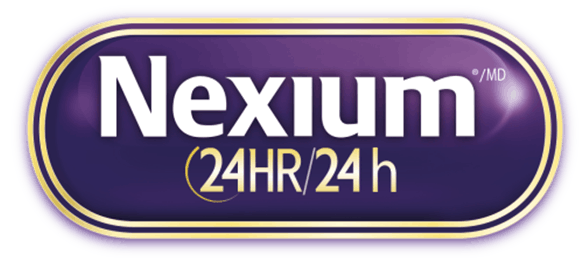What is Acid Reflux?
Acid reflux is when stomach acid travels back out of your stomach and up your throat. This is due to the lower esophageal sphincter (LES) – the muscle that connects your stomach to your esophagus – being weak or not tightening up after letting food into your stomach, meaning acid can leak back up the esophagus, causing heartburn.
What’s the Difference Between Acid Reflux & Heartburn?
Heartburn and acid reflux are terms often used interchangeably – but in fact, they’re not the same thing. Heartburn is a symptom of acid reflux. Heartburn describes the painful, burning feeling you get in your chest when acid reflux occurs.
Acid Reflux Causes
It’s hard to pinpoint exactly what causes acid reflux and the failure of the LES muscle to keep stomach acid out of the esophagus. However, we know that the following can make it worse:
- Being overweight – losing weight is known to reduce acid reflux symptoms.
- Your diet – foods to avoid when you have frequent acid reflux include fried, fatty, and spicy foods, plus highly-acidic foods like tomatoes and citrus fruits.
- Lying down after eating – lying down makes it easier for stomach acid to leak into your esophagus. Try not to eat anything 3 or more hours before going to bed.
- Alcohol, caffeine and soft drinks – alcoholic drinks like white wine are acidic, as are carbonated and caffeinated drinks. Cutting down on alcohol, soft drinks, tea and coffee can help reduce heartburn.
Acid Reflux Symptoms
Heartburn is the main symptom of acid reflux. It’s the uncomfortable feeling in the centre of your chest, sometimes rising to the throat, that can happen after eating or drinking.
Some other symptoms of acid reflux can include:
- The sour, acidic taste of stomach acid in your mouth
- Bad breath
- Reoccurring hiccups or coughing
- A hoarse voice
- Feeling sick
- Bloating
Treatments for Heartburn
Treating heartburn can be achieved using medications like antacids for occasional heartburn (generally occurs after eating) or proton pump inhibitors for more frequent heartburn, heartburn occurring 2 or more days a week.
Antacids
Antacids help to relieve the symptoms of heartburn and indigestion by neutralizing stomach acid. They don’t treat what causes acid reflux, but provide relief for people who suffer heartburn occasionally. They work quickly to soothe painful heartburn symptoms.
Proton Pump Inhibitors
Proton pump inhibitors, or PPIs, act to block or reduce the production of stomach acid in the cells of the stomach lining. They are designed to be taken every day to stop symptoms before they occur. They are used to treat conditions like acid reflux, gastroesophageal reflux disease (GERD), stomach ulcers and Zollinger-Ellison syndrome.
Esomeprazole is one type of PPI and is used in Nexium 24HR. It’s for people who suffer from the symptoms of frequent heartburn, heartburn that occurs 2 or more days a week. Speak to your pharmacist or doctor to learn more about treating frequent heartburn and whether Nexium 24HR is for you.
Avoiding Acid Reflux Triggers
If you can identify what causes or intensifies your acid reflux, you can better manage your condition.
If you have acid reflux most often after eating, consider whether you’re eating too much, too quickly, or keep a food diary and see if a certain type of food is triggering you. Perhaps you get heartburn after drinking alcohol, intensely exercising, or when you lie down too soon after a meal.
Figuring out when and why you suffer from acid reflux can help you learn which foods and situations to avoid, so you can reduce the discomfort of having frequent heartburn.
Surgery for Acid Reflux
In rare cases, medications and avoiding triggers won’t always stop frequent heartburn. If that happens, doctors may opt to perform surgery called a laparoscopic fundoplication on the stomach to help prevent stomach acid from traveling up the esophagus.
If you are concerned that your acid reflux isn’t being helped by taking antacids, PPIs, or making lifestyle changes, speak to your doctor to help diagnose why it still happens.

